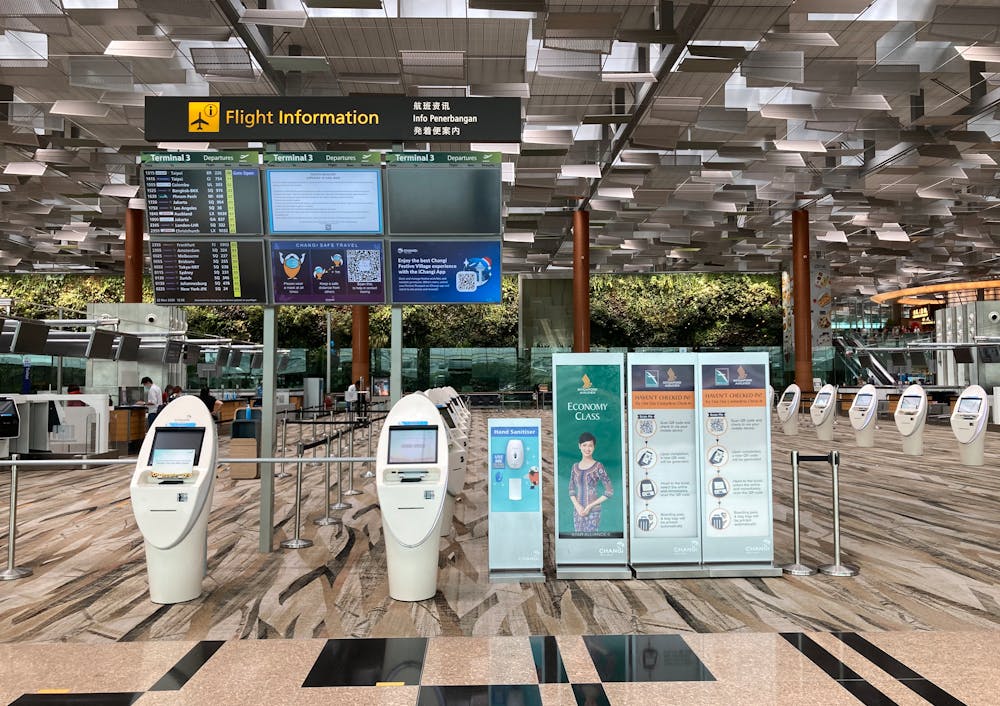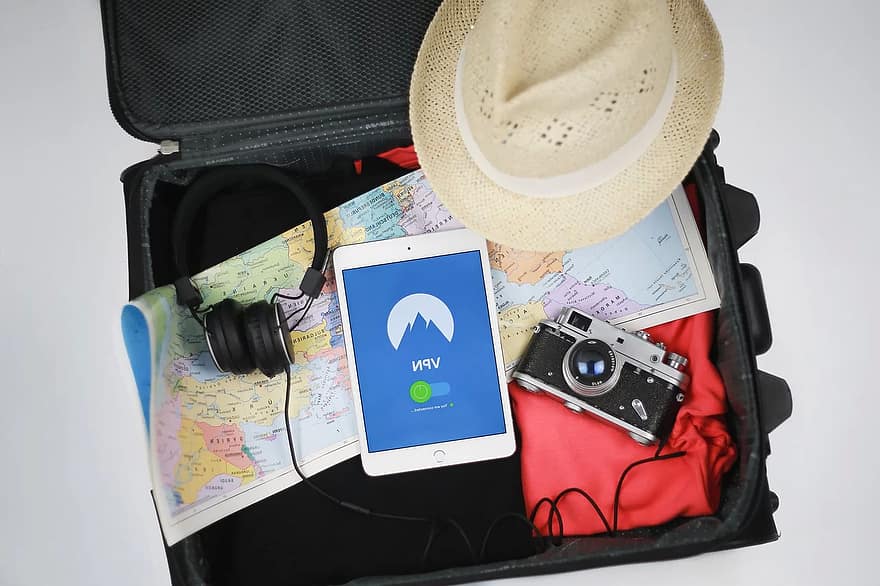In an interconnected world, the travel bug bites one quite often. And it’s irresistible to say no when there are so many places to explore, cultures to dive in, and cuisines to taste. And where do you count that modern technology makes it even more comfortable to leave your house in search for something new to discover. From buying plane tickets to booking accommodation and paying with digital money, tech is here to serve all your needs when travelling. And while you might travel has only benefits, unfortunately it also exposes you to a range of security threats. Protecting your personal information usually isn’t a priority when planning a trip or while traveling, but the reality is that you’re quite vulnerable to cybercriminals in these instances.
Learn how to secure your information and keep malevolent entities at bay.
Image source https://unsplash.com/photos/man-sitting-on-gang-chair-with-feet-on-luggage-looking-at-airplane-mSESwdMZr-A
Use cryptocurrencies
When traveling, financial security is a top priority. Traditional banking systems come with risks such as card theft, fraud, and high foreign exchange fees. Cryptocurrencies, however, provide a secure and convenient alternative that enhances your financial safety while abroad. Since cryptocurrencies operate on decentralized blockchain networks, they eliminate the need for intermediaries, reducing the chances of fraud or identity theft. You can use digital wallets to store and transact cryptocurrencies without revealing personal banking details. This anonymity protects against potential financial breaches.
Additionally, digital currencies like Cardano’s ADA are becoming more widely accepted by travel agencies, airlines, and hotels. The ability to use cryptocurrencies for bookings not only simplifies transactions but also ensures secure payments without relying on traditional banking networks. If you consider investing in ADA, understanding its market trends and future value is essential. Check out an ADA price prediction to make informed decisions before your trip. And make sure the service providers at your destination accept ADA. If they do not, add to your wallet a crypto coin they accept.
Use contactless payments and digital wallets
Carrying large amounts of cash or even using physical credit cards can expose you to theft or loss. Digital wallets, such as Apple Pay, Google Pay, and cryptocurrency wallets, allow you to make secure, contactless transactions on the go. These wallets use advanced encryption and biometric authentication, ensuring that even if your phone is lost, unauthorized access is nearly impossible.
Moreover, some digital wallets offer real-time exchange rates, helping you avoid hidden fees associated with currency conversion. By utilizing digital payment methods, you reduce the need for physical cash and enhance your overall travel safety.
Learn about AI-powered fraud detection
Artificial intelligence (AI) plays a crucial role in fraud detection and cybersecurity. Many banks and financial institutions now use AI algorithms to monitor transaction patterns and detect unusual activities that may indicate fraud. When you’re traveling, these AI systems provide an extra layer of protection by flagging suspicious transactions in real time.
AI-powered fraud detection also extends to online bookings. Many travel platforms leverage machine learning to identify and block fraudulent listings, preventing travelers from falling victim to scams. This means you can book accommodations and transportation with greater confidence, knowing that digital security measures are in place.
Rely on biometric security for seamless identification
Security checkpoints and border crossings have become faster and safer thanks to biometric technology. Airports worldwide now use facial recognition, fingerprint scanning, and iris recognition to verify travelers’ identities, reducing the risk of forged passports and identity fraud.
Beyond border control, many hotels and transportation services incorporate biometric authentication for secure access. Instead of carrying physical keys or boarding passes, you can use fingerprint or facial recognition technology to check into hotels, board flights, or rent vehicles, streamlining the travel experience while enhancing security.
Install smart travel apps for real-time safety alerts
Digital travel apps equipped with real-time safety alerts help you stay informed about your surroundings. Apps like Google Maps, SafeAround, and TripWhistle provide updates on potential security threats, such as crime hotspots or political unrest, allowing you to make safer decisions.
Some apps also integrate emergency services, enabling you to contact local authorities with a single tap. These innovations ensure that you remain aware and prepared for any unexpected situations while exploring new destinations.
Use VPNs
Public Wi-Fi networks at airports, hotels, and cafes are convenient but often lack proper security, making them a prime target for cybercriminals. Virtual Private Networks (VPNs) provide a secure way to browse the internet while traveling by encrypting your data and masking your IP address.
A VPN prevents hackers from intercepting sensitive information, such as banking details or login credentials, ensuring that your online activities remain private. This is especially crucial when accessing financial services or making online transactions abroad.
GPS and location sharing for personal safety
Location-sharing features on smartphones and smartwatches allow you to keep friends and family updated on your whereabouts. Apps like Google Maps, Find My iPhone, and Life360 provide real-time tracking, offering peace of mind both to you and your loved ones.
Some travel apps also integrate emergency SOS features, allowing you to send distress signals to authorities or trusted contacts if you find themselves in danger. By leveraging GPS and location-sharing technologies, you can enhance your personal security while exploring unfamiliar territories.
Do your research before leaving home
Digital technology has revolutionized the way we travel, providing innovative solutions that enhance safety, security, and convenience. Cryptocurrencies offer a secure financial alternative, AI detects fraud in real-time, and biometric security simplifies identification processes. Additionally, smart travel apps, VPNs, and GPS tracking ensure travelers remain informed and protected throughout their journey.
By integrating these digital innovations into your travel routine, you can enjoy a safer and more seamless travel experience, whether you’re exploring bustling cities or remote destinations. And keep in mind that these are only a couple of examples of how you can stay safe when travelling. Depending on your future destination you might have to take some specific measures to protect your information and stay safe on the road. Research is crucial, so don’t neglect it!

